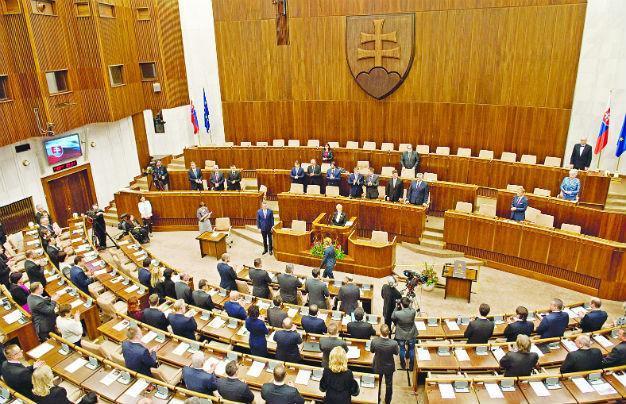Slovak president appoints Robert Fico for another term as PM
BRATISLAVA – Reuters

AFP photo
Slovak president Andrej Kiska appointed Robert Fico as prime minister on March 23 after Fico’s leftist Smer party won the largest share of the vote in a March 5 election and formed a four-party coalition.Fico’s Smer won the most votes but lost its majority by a wide margin, raising uncertainty over whether a stable government could be formed before Bratislava takes over the European Union’s rotating presidency later this year.
But Fico, prime minister in 2006-2010 and 2012-2016, moved fast and three small centrist and nationalist partners signed a coalition agreement with his party on March 22.
Fico’s cabinet, also appointed on March 23, now has 30 days to win a confidence vote in the 150-seat parliament, where the four parties hold 81 seats.
Ideological differences between Fico and two center-right coalition parties and animosity between Slovak nationalists and a party representing the Hungarian minority raise questions over how long the coalition will last.
Fico’s party will be dominant in the coalition and hold key ministries of finance, interior and foreign affairs.
The finance ministry will again be in the hands of Peter Kazimir, respected for keeping budget deficits under control and known for his tough stance in the euro zone’s negotiations with debt-plagued Greece.
The coalition plans moderate cuts in taxes for corporations and small entrepreneurs and a balanced budget by the end of its term in 2020, two years later than previously planned.
It has also agreed to tackle shortcomings in healthcare and education and increase transparency in government and public spending after a series of corruption scandals.
Fico based his pre-election campaign on strong opposition to allowing refugees into Slovakia and filed a lawsuit against an EU decision to impose mandatory quotas on distributing refugees among member states.
But this agenda was not mentioned at all in the coalition agreement, suggesting it was not a common priority for the four parties.
















